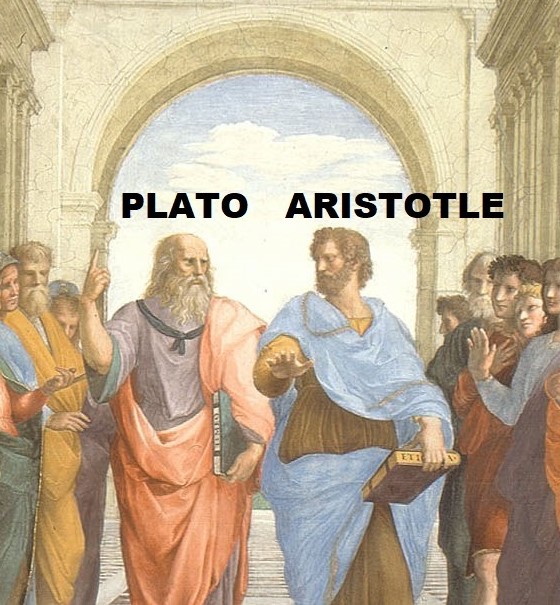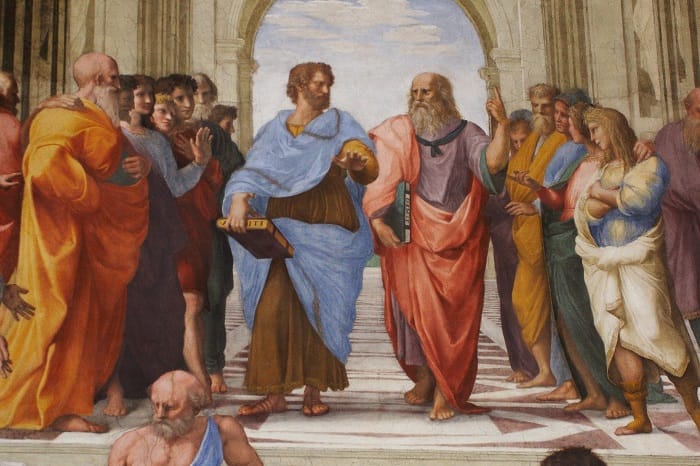![[BKEYWORD-0-3] Plato and Aristotle An Analysis](https://www.essay.ws/wp-content/uploads/2015/11/Plato-and-Aristotle.jpg)
Plato and Aristotle An Analysis Video
Plato and Aristotle (Introduction to Greek Philosophy)Understand you: Plato and Aristotle An Analysis
| Abortion Was A Lawful Alternative Before 1973 | 6 days ago · Through ancient and modern political science there are several similarities and differences. In this first paragraph, I am going to be addressing the similarities of both. In ancient political science, we have many Greek philosophers that were present, including; Socrates, Plato, and Aristotle. 3 days ago · Ancient Pre-Cursors of Natural Law: Plato and Aristotle – Online Assignment Services. Uncategorized. Description. In this course, Discussion Boards Forums play an exceptionally important role. The readings are relatively short to allow for substantial reflection, personal research, and quality discussion to occur. Consider these threads and. 3 days ago · HN 02 The Ancient Greeks (Plato & Aristotle, & Misogyny) See all questions Question 10 of 10 Points 4 Holland - Misogyny - Ch 1 In his analysis of Plato and his philosophy, Holland argues that A) Plato's Theory of Forms can be best understood as the philosophical basis for Western doctrines of the Fall of Man, such as the Christian doctrine of Original Sin and the Greek allegory of Pandora's. |
| TAKING A LOOK AT MORALITY | 590 |
| Plato and Aristotle An Analysis | Biography of Jean Jacques Rousseau |
Plato and Aristotle share with us the assumption that the aim of natural science is to provide an objective description of the natural world. But the natural world as it is conceived by Plato and Aristotle is not a value-free world.
What Is Aristotle's Rhetorical Triangle
They both Aistotle committed to the view that there are values in the natural world, or that values are part of Aristptle furniture of the natural world. Their job as students of nature is to attain understanding of the perfection and goodness of the natural world on the crucial assumption that we can objectively make value judgments about the natural world.
This book is about Plato and his attempt to offer a representation of the perfection and goodness of the natural world in the Timaeus-Critias. But it is clearly in some sense intended as an introduction to a certain style of natural philosophy, which culminates in Aristotle's natural science. Plato and Aristotle consider teleology to be indispensable in studying natural processes.
They both criticize their predecessors for failing to see this important truth about the natural world. This book is presented to the reader as a way to become familiar with the teleological outlook shared by both philosophers: "the teleological outlook that drives both philosophers often makes them confront the same click here of questions and objections. I hope therefore to convey a sense of the ways in which Plato anticipates the concerns of Aristotle's natural philosophy, even where Plato and Aristotle An Analysis specific answers differ" The upshot of the book is that the Timaeus-Critias is much closer to Aristotle's natural philosophy than it is often thought.
"Is this question part of your assignment? We Can Help!"
One idea that surfaces several times in the book is that Plato's study of the natural world is ultimately motivated by an ethical concern. On this reading of Plato's natural philosophy, a study of the natural world provides objective grounds for the view that nature by its teleological order promotes the rule of reason over necessity. This is ethically significant Aristotel we face as human beings the same challenge to reassert the role of reason over necessity. Goodness is represented in the universe. We can therefore learn something about goodness by studying the cosmos. Cosmology teaches us Plato and Aristotle An Analysis to lead our lives. It is therefore a recommended course of studies if we are to become better people" 1. The view that natural philosophy contains an ethical lesson is not unique to Plato, but it is not clear that Aristotle endorsed it.

Indeed, it is possible to develop an interpretation of Aristotle according to which natural philosophy and ethics represent two distinct, autonomous spheres of philosophy. Like Plato, Aristotle believes that order, perfection, and goodness are found or discovered, not projected, in the natural world. But the Analysos of these discoveries or findings for human agency is open to discussion. Admittedly, the author never claims that Aristotle agrees with Plato on the ethical relevance of natural philosophy.
Nor does he say that Aristotle disagrees. His lack of explicitness on this point, however, is not entirely fortunate since the book is intended "to place the Timaeus-Critias within the context of Aristotle's philosophy" 5. An area where the book makes a convincing contribution is in discussing the precise relationship between Plato and Aristotle An Analysis and craftsmanship. Plato notoriously credits a divine craftsman for the creation of the universe.
Masters of Greek Thought: Plato, Socrates, and Aristotle
There is a sense in which the job of the divine craftsman is not different from that of any other craftsman. He has to act on a material, and the material is to be receptive of the model in order to be made like the model. The idea that the world is a product of design has enormous consequences for the history of natural philosophy. But the point I am interested in here is not this, but http://immigrant.com.tw/content/custom/the-removalists-summary/the-scale-of-global-climate-disruption.php the following: how exactly is the appeal to a divine craftsman to be understood?

From Aristotle we learn that a craftsman is the practitioner of a certain craftsmanship. Several times Aristotle insists that the craftsmanship, not the craftsman, is what matters. Strictly speaking, it is not the builder who is the moving or efficient cause of the house, but Plato and Aristotle An Analysis art of building which resides in the builder.
The author argues that this idea of craftsmanship is not restricted to Aristotle. It occurs repeatedly in Plato. In thinking about the divine craftsman we have therefore to disabuse ourselves of the pre-reflective notion that the craftsmen are individuals operating from particular beliefs, desires and intentions. Their beliefs, desires and intentions are to be understood in terms of the general attributes of the relevant craftsmanship. The divine craftsman is no exception to the rule. The divine craftsman is the manifestation of the relevant craftsmanship rather than an individual person with particular beliefs, desires and intentions.]
You are absolutely right. In it something is also to me this idea is pleasant, I completely with you agree.
It is rather valuable phrase
I apologise, but, in my opinion, you are not right. I can prove it. Write to me in PM, we will talk.
I join told all above. We can communicate on this theme. Here or in PM.